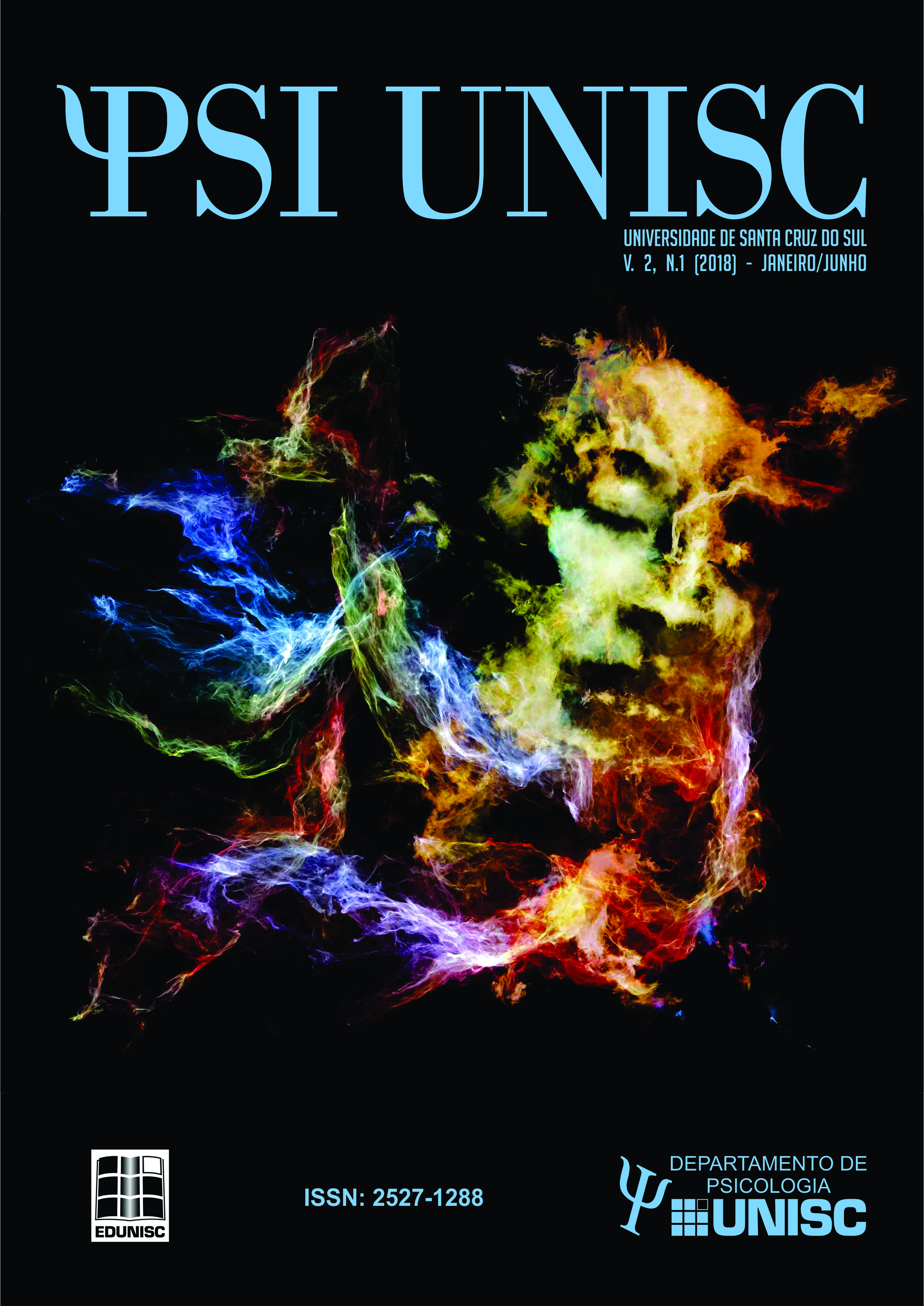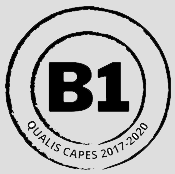Theoretical and methodological approach to codification procedures of Professional Careers
DOI:
https://doi.org/10.17058/psiunisc.v2i2.11121Keywords:
Careers. Professional paths. Review. Categorization. Models.Abstract
Professional careers constitute a phenomenon recurrently studied in social sciences. The aim of this article is to present a review of the available literature about the subject in order to identify how careers, trajectories and professional transitions are studied, what methodological analysis are used and to which topics they are recurrently associated to finally know in what conceptual and methodological models generate or on which those are supported. To this end, a search has been made in different indexed databases giving rise to a selection of 66 articles that deal with the phenomenon in question. The descriptive results by means of frequency tables highlight the growing proliferation of studies, especially qualitative, that address the phenomenon and point to the main conclusion of generating new conceptual models and categorization of careers that adapt to the environment and contemporary demands.Downloads
References
Adams, E., Cahill, B. & Ackerlind, S. (2005). A qualitative study of Latino lesbian and gay youths’ experiences with discrimination and the career development process. Journal of Vocational Behavior, 66(2), pp. 199–218. doi:10.1016/j.jvb.2004.11.002
Alcaide, M. (2004). La crisis del modelo tradicional de Carrera. Temas laborales: Revista andaluza de trabajo y bienestar social, 73, 223-250.
Alles, M. A. (2011). Diccionario de términos de Recursos Humanos. Santiago de Chile: Ediciones Granica, S.A.
Aneas, A., Vilà, R., Pérez, H. & Orellana, N. (2015). Desde el Prácticum hacia la soledad. Experiencias y aportes para el desarrollo de la carrera profesional en educación. En Raposo-Rivas, M., Muñoz Carril, P., Zabalza-Cerdeiriña, M., Martínez-Figueira, M. y Pérez-Abellás, A. Documentar y evaluar la experiencia de los estudiantes en las practices. Poio, Andavira, pp. 211-223.
Arthur, M. & Rosseau, D. (1996). The Boundaryless Career: A New Employment Principle for a New Organizational Era. Oxford: Oxford University Press.
Arthur, M., Hall, D., & Laurence, B. (1989). Handbook of career theory. Cambridge: Cambridge University Press.
Biemann, T., Zacher, H., & Feldman, D. (2012). Career patterns: A twenty-year panel study. Journal of Vocational Behavior, 81(2), 159–170. doi:10.1016/j.jvb.2012.06.003
Blanco-García, M. M., Sánchez-Antolín, P. & Ramos, F. J. (2016). Conciliación de la Vida Laboral y Familiar en Mujeres en Formación Ocupacional. Multidisciplinary Journal of Educational Research, 6(2), 127-151.
Blustein, D. & Noumair, D. (1996). Self and Identity in career development: implications for theory and practice. Journal of Counseling & Development, 74, 433-44.
Bombuwela, P. & De Alwis, A. (2013). Effects of Glass Ceiling on Women Career Development in Private Sector Organizations - Case of Sri Lanka. Journal of Competitiveness, 5(2), 3-19.
Bornat, J., Henry, L. & Raghuram, P. (2011). The making of careers, the making of a discipline: Luck and chance in migrant careers in geriatric medicine. Journal of Vocational Behavior, 78(3), 342–350. doi:10.1016/j.jvb.2011.03.015
Briscoe, J. P. & Hall, D. T. (2006). The interplay of boundaryless and protean careers: Combinations and implications. Journal of Vocational Behavior, 69, 4-18.
Campos, M. (2015). Ciclo de vida profesional del profesor universitario: La metamorfosis de la carrera docente desde el relato biográfico. Valladolid: Universidad de Valladolid.
Cohen, L., & Duberley, J. (2013). Constructing careers through narrative and music: An analysis of Desert Island Discs. Journal of Vocational Behavior, 82(3), 165–175. doi:10.1016/j.jvb.2013.01.010
Davies, K. (1996). Capturing women’s lives - A Discussion of Time and Methodological Issues”, Women’s Studies International Forum, 19(6), 579–588. doi:10.1016/S0277-5395(96)00070-2
Debois, N., Ledon, A., Argiolas, C. & Rosnet, E. (2012). A lifespan perspective on transitions during a top sports career: A case of an elite female fencer. Psychology of Sport and Exercise, 13(5), 660–668. doi:10.1016/j.psychsport.2012.04.010
Ferreira, J., Santos, E., Fonseca, A. & Haase, R. (2007). Early predictors of career development: A 10-year follow-up study. Journal of Vocational Behavior, 70(1), 61–77. doi:10.1016/j.jvb.2006.04.006
Gómez-Mejía, L. R., Balkin D. B., & Cardy, R. L. (1997). Gestión de Recursos Humanos. Madrid: Prentice Hall.
González, A. (2014). ¿Camuflaje o tranformación? Estrategia profesional de las mujeres en carreras tecnológicas altamente masculinizadas. Educarvol, 50(1), 187-205.
Hall, D. (1976). Careers in organizations. Glenview, Scott: Foresman and Company.
Hall, D. (1992). Career indecision research: Conceptual and methodological problems. Journal of Vocational Behavior, 41(3), 245–250. doi:10.1016/0001-8791(92)90026-V
Heller, L. (2011). Mujeres en la cumbre corporativa: el caso de la Argentina. Revista del Centro de Estudios de Sociología del Trabajo, 1(3), 1-28.
Huang, Q. & Sverke, M. (2007). Women’s occupational career patterns over 27 years: Relations to family of origin, life careers, and wellness. Journal of Vocational Behavior, 70(2), 369–397. doi:10.1016/j.jvb.2006.12.003
Huberman, M. (1989). On teachers’ careers: Once over lightly, with a broad brush. International Journal of Educational Research, 13(4), 347–362. doi:10.1016/0883-0355(89)90033-5
Ibarra, H. (2004). Career transition and change. Faculty & Research: Working paper series, 97, 2-28.
Inkson, K. (2004). Images of career: Nine key metaphors. Journal of Vocational Behavior, 65(1), 96–111. doi:10.1016/S0001-8791(03)00053-8
Jiménez, M. (2009). Tendencias y hallazgos en los estudios de trayectoria: una opción metodológica para clasificar el desarrollo laboral. Revista electrónica de investigación educativa, 11(1), 1–21.
Keen, C. & Pease, H. (2016). The role of service-learning and mentoring in the early career development of a research methodologist. The Qualitative Report, 21(1), 117-126.
Kelly, K. & Lee, W. (2002). Mapping the Domain of Career Decision Problems. Journal of Vocational Behavior, 61(2), 302–326. doi:10.1006/jvbe.2001.1858
Kumar, K., Jones, D., Naden, K. & Roberts, C. (2015). Rural and remote young people's health career decision making within a health workforce development program: a qualitative exploration. Rural and Remote Health, 15(4):3303.
Lapointe, K. (2010). Narrating career, positioning identity: Career identity as a narrative practice. Journal of Vocational Behavior, 77(1), 1–9. doi:10.1016/j.jvb.2010.04.003
Lonborg, S. & Phillips, J. (1996). Investigating the Career Development of Gay, Lesbian, and Bisexual People: Methodological Considerations and Recommendations. Journal of Vocational Behavior, 48(2), 176–194. doi:10.1006/jvbe.1996.0017
Lozano, I., Iglesias, M. & Martínez, M. (2014). Las oportunidades de las académicas en el desarrollo profesional docente universitario: un estudio cualitativo. Educación XXI, 17(1), 157-182. doi: 10.5944/educxx1.17.1.10709.
Lyons, S., Schweitzer, L. & Ng, E. (2015). How have careers changed? An investigation of changing career patterns across four generations. Journal of Managerial Psychology, 30(1), 8-21.
Mainiero, L. A., & Sullivan, S. E. (2005). Kaleidoscope careers: An alternate explanation for the "opt-out" revolution. Academy of Management Executive, 19, 106-123.
Meschman, C. (2014). La narrativa de experiencias como instrumento metodológico para la indagación de la construcción de identidad de profesores en psicología. In VI Congreso Internacional de Investigación y Práctica Profesional en Psicología XXI Jornadas de Investigación Décimo Encuentro de Investigadores en Psicología del MERCOSUR. Buenos Aires, Argentina.
Milligan, C., Kearns, R. & Kyle, R. (2011). Unpacking stored and storied knowledge: Elicited biographies of activism in mental health. Health & Place, 17(1), 7–16. doi:10.1016/j.healthplace.2009.12.016
Moen, P. & Orrange, R. (2002). Careers and lives socialization, structural lag, and gendered ambivalence. Advances in Life Course Research, 7, 231–260. doi:10.1016/S1040-2608(02)80036-3
Ng, T. & Feldman, D. (2007). Organizational embeddedness and occupational embeddedness across career stages. Journal of Vocational Behavior, 70(2), 336–351. doi:10.1016/j.jvb.2006.10.002
Nuñez, P., Grande, F. & Pedrosa, C. (2012). Nuevos retos en el desarrollo de carrera profesional: el modelo boundaryless career. Universia Business Review, 34, 15-35.
Pallarés, S., Torregrossa, M., Azócar, F., Selva, C. & Ramis, Y. (2011). Modelos de trayectoria deportiva en waterpolo y su implicación en la transición hacia una carrera profesional alternative. Cultura, Ciencia y Deporte, 17(6), 93-103.
Pallarès, S., & Selva, C. (2016). La gestión del contrato psicológico en una empresa multinacional de alimentos Española. Psicoperspectivas, 15(2), 40-52. DOI: 10.XXXX/PSICOPERSPECTIVAS-VOL15- ISSUE2-FULLTEXT-685
Peiperl, M. & Baruch, Y. (1997). Back to Square Zero: The Post-Corporate Career. Organizational Dynamics, 25, 7-22.
Pons, O., Calvet, M., Tura, M. & Muñoz, C. (2014). Análisis de la Igualdad de Oportunidades de Género en la Ciencia y la Tecnología: Las carreras profesionales de las mujeres científicas y tecnólogas. Intangible capital, 9(1), 65-90.
Real Academia Española (2001). Diccionario de la lengua Española. Madrid: Espasa.
Reitzle, M. & Vondracek, F. W. (2000). Methodological Avenues for the Study of Career Pathways. Journal of Vocational Behavior, 57(3), 445–467. doi:10.1006/jvbe.2000.1751
Reitzle, M., Körner, A. & Vondracek, F. W. (2009). Psychological and demographic correlates of career patterns. Journal of Vocational Behavior, 74(3), 308–320. doi:10.1016/j.jvb.2009.02.005
Rinke, C. (2008). Understanding teachers’ careers: Linking professional life to professional path. Educational Research Review, 3(1), 1–13. doi:10.1016/j.edurev.2007.10.001
Rounds, J. & Jin, J. (2013). Nature, importance and assessment of needs and values. In Brown, S. D. and Lent, R. W. (Eds.). Career development and counseling: putting theory and research to work (pp: 417-447). San Francisco: John Wiley & Sons.
Ruvalcaba-Coyaso, F., Alvarado, I. & García, R. (2011). Identidad e identidad profesional: acercamiento conceptual e investigación contemporánea. Revista CES Psicología, 4(2), 82–102.
Sáez, M. L. (1995). La elección de una carrera típicamente femenina o masculina: desde una perspectiva psicosocial: la influencia del género. Madrid: Ministerio de Educación y Ciencia.
Sánchez-Olavarria, C. (2014). Los egresados de comunicación y el mercado laboral: un estudio de trayectorias profesionales. Revista iberoamericana de educación superior, 5(3), 40-54.
Segers, J., Inceoglu, I., Vloeberghs, D., Bartram, D. & Henderickx, E. (2008). Protean and boundaryless careers: A study on potential motivators. Journal of Vocational Behavior, 73, 212-230.
Selva, C. (2013). Models of professional career of the managerial women. Universitas Psychologica, 12(4), 1237-1254.
Selva, C. & Tresserra, O. (2013). La flexibilidad como herramienta para encaminar el bienestar laboral. In Cantera, L., Pallarès, S. y
Selva, C. (Coords.), Del malestar al bienestar laboral (pp. 215-240). Barcelona: Amentia.
Selva, C. & Tresserra, O. (2014). Flexibilidad Global, sinécdoque de progreso. Athenea Digital, 14(2), pp. 197-202. http://dx.doi.org/10.5565/rev/athenea.1226
Spink, P. (2005). Replanteando la investigación de campo: relatos y lugares. Athenea Digital - Revista de pensamiento e investigación social, 1(8), 1-9.
Sullivan, S. & ARTHUR, M. (2005). The evolution of the boundaryless career concept: examining physical and psychological mobility. Journal of vocational behavior, 69, 19-29.
Sullivan, S. & Maineiro, L. (2008). Using the Kaleidoscope Career Model to Understand the Changing Patterns of Women's Careers: Designing HRD Programs That Attract and Retain Women. Advances in Developing Human Resources, 10(1), 32-49.
Tadeucci, M., Araujo, E. & Ribeiro, M. (2013). Competencias sociales en la estrategia de desarrollo de Carrera. Apuntes de psicología, 31(1), 93-99.
Vargas, M. (2014). La mujer ante la carrera académica universitaria: cuestiones tras el análisis cualitativo de los datos. Revista de estudios socioeducativos, 2, 134-155.
Vilanova, A. & Puig, N. (2013). Compaginar la carrera deportiva con la carrera académica para la futura inserción laboral: ¿Una cuestión de estrategia?. Revista de psicología del deporte, 22(1), 61-68.
Vinkenburg, C. & Weber, T. (2012). Managerial career patterns: A review of the empirical evidence. Journal of Vocational Behavior, 80(3), 592–607. doi:10.1016/j.jvb.2012.02.001
Willett, J. & Singer, J. (1989). Two types of question about time: Methodological issues in the analysis of teacher career path data. International Journal of Educational Research, 13(4), 421–437. doi:10.1016/0883-0355(89)90038-4
Wylleman, P. & Lavallee, D. (2003). A developmental perspective on transitions faced by athletes. In M. Weiss (ed). Developmental Sport Psychology. Morgantwon, WV: Fitness Information Technology.
Zacher, H. & Griffin, B. (2015). Older workers’ age as a moderator of the relationship between career adaptability and job satisfaction. Work, Aging and Retirement, 1, 227-236. doi:10.1093/workar/wau009
Zuperkienè, E. & Zžilinskas, V. (2008). Analysis of Factors Motivating the Managers’ Career. Work humanism, 2(57), pp. 85-91.
Zwann, K., Ter, T. F. M. & Raaijmakers, Q. (2010). Career trajectories of Dutch pop musicians: A longitudinal study. Journal of Vocational Behavior, 77(1), 10–20. doi:10.1016/j.jvb.2010.03.004
Downloads
Published
How to Cite
Issue
Section
License
The submission of originals to this journal implies the transfer, by the authors, of the printed and digital publication rights. The copyrights for the published articles are those of the author, with periodical rights on the first publication. Authors may only use the same results in other publications clearly indicating this journal as the medium of the original publication. Because we are an open access journal, we allow free use of articles in educational and scientific applications provided the source is cited under the Creative Commons CC-BY license.




